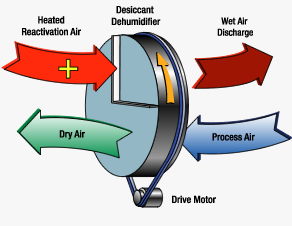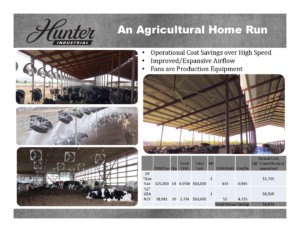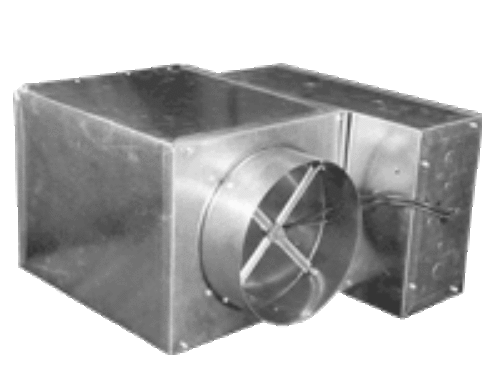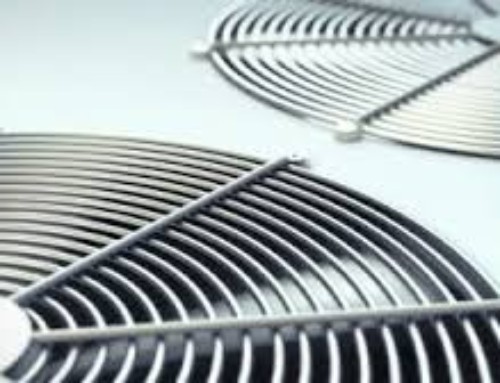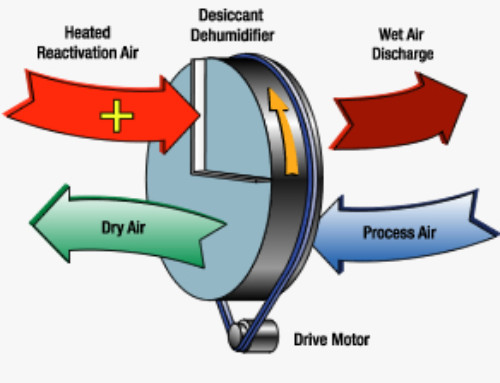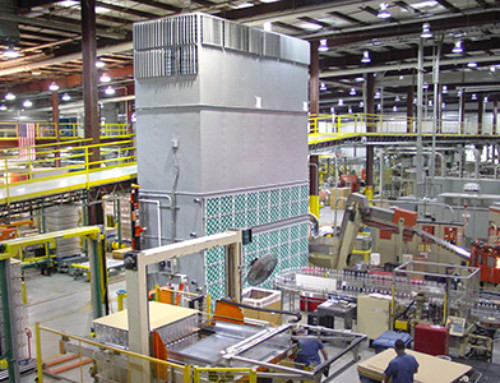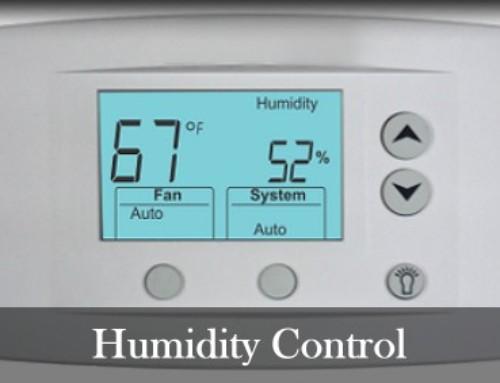The HVLS Fan or Industrial Ceiling Fan (or Large Paddle Fan) is in a category of its own. The beauty of what it offers is a lot of air movement using less pieces. Before this type of fan, the use of large number of smaller fans would be used to accomplish the same goal. Considering the first cost, energy usage and even quality of air movement (noise and aesthetics) the HVLS Fan is a no-brainer. Think of this example where multiple barrel fans were used and replaced with Hunter HVLS Fans:
The above picture depicts 70 fans, each with 1hp motors pushing a net of 2.7M CFM, being replaced with 14 HVLS Fans, each with 1 HP motors delivering 4.55M CFM. Less electrical hook ups, less power consumption, and a bonus, the slow moving fans make significantly less noise than the multiple small fan scenario.
So what is the best way to layout? Besides the obvious choice of using your vendor as a resource, you can figure the following rules:
-
- Use the largest Diameter Fan as possible! The difference in installed cost of a 24′ fan vs a 20′ is very small as there is very little material cost difference of both.Thus, the 24′ HVLS fan will provide best value.
- Use The following Chart:
| Fan Diameter | Approximate Coverage |
Spacing Between Fans (Center-Center) |
| 8 Feet | 1100 Square Feet | 25 Feet |
| 10 Feet | 1600 Square Feet | 30 Feet |
| 12 Feet | 2300 Square Feet | 40 Feet |
| 14 Feet | 3100-4900 Square Feet | 45-50 Feet |
| 16 Feet | 4100-6400 Square Feet | 55-60 Feet |
| 18 Feet | 5200-8100 Square Feet | 65-70 Feet |
| 20 Feet | 6400-10000 Square Feet | 70-80 Feet |
| 24 Feet | 9200-14400 Square Feet | 85-100 Feet |
So What Does The Chart Mean?
- Typically the HVLS Fan mounts 1/4″ to 1/2″ the Fan Diameter Below the Ceiling (ie a 20 foot fan is mounted 5-10 feet from the ceiling)
- The Fan should be mounted approximate 1 diameter from the floor (ie, a 20 foot fan should be mounted 20 feet from the floor)
- The Hunter TITAN Fan will give more CFM for the same diameter.
- Contact Us for More Information
- ADDITIONAL HUNTER PRODUCT INFO


